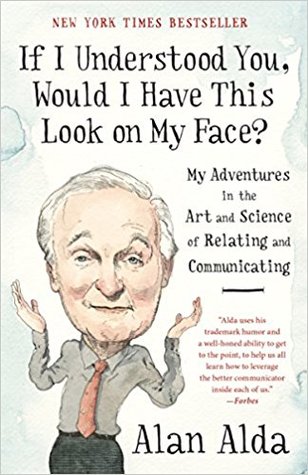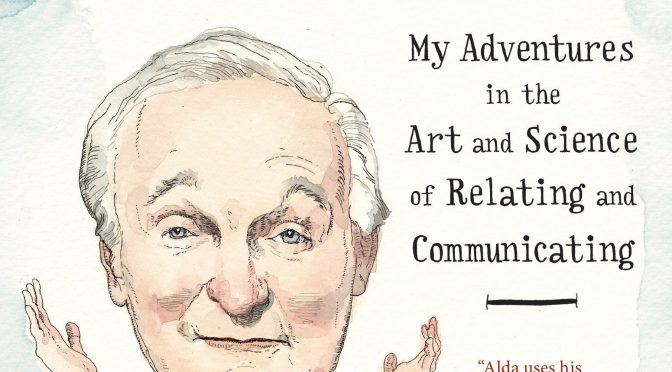
When I was getting ready for school in the morning as a tween-going-on-teen, I’d often have the TV on in the background, playing reruns of whatever television shows adults enjoyed in those days. So I’ve never actually seen a full episode of M*A*S*H, and really only know it by the sound of the helicopter blades in the opening segment, which was often playing as I walked out the door. But I’m definitely familiar with the actor who played Hawkeye in this show, Alan Alda. After Hawkeye’s tour was over, Alda hosted Scientific American Frontiers for 12 of its 15 seasons, and that show was most certainly not just background to my middle school mornings. For me, Scientific American Frontiers was a sit-down-stop-everything-else-and-only-watch-TV kind of show. Naturally, I decided I had to read Alda’s latest memoir, If I Understood You, Would I Have This Look on My Face?, which encompasses his experience with scientific communication in an amusing and relatable way. As Alda says in the introduction, “Developing empathy and learning to recognize what the other person is thinking are both essential to good communication, and are what this book is about.”
Storytelling is an important aspect of science. When we’re giving a talk, we have to convince the people listening that the research is worth their time and attention. Alda argues that communicating isn’t just telling. It is simultaneously observing and determining whether the audience follows, and whether what you’re saying resonates with them. In many ways, it’s akin to a performance, which is perhaps why an actor with a prolific track record like Alda is so successful at it. Using small studies and anecdotes as evidence, Alda suggests in this book that things like improvisation or audience-synchronization exercises can improve presentation skills.
His principle extends to written audiences as well. A writer cannot observe and react to a reader’s thoughts, confusions, or frustrations, but they can learn to think about a reader’s state of mind and anticipate the reader’s expectations. In essence, a writer can learn to be familiar with the experience level of their target reader and what questions they might ask if they were in the room, and adjust the narrative or delivery of the story accordingly.
If I Understood You, Would I Have This Look on My Face? is a quick read, but that doesn’t hinder its capacity to home in on the important points above. This is not a how-to book; just reading it will not inherently improve your ability to communicate or your grant writing. But it may give you an idea of how to practice getting into your audience’s head and engaging with them in an easy and effective manner. Every audience will be different, and it is our responsibility – as researchers, as authors, as presenters – to be able communicate the intricate concepts of our research in a way that is readily comprehended by both scientists and non-scientists alike.

